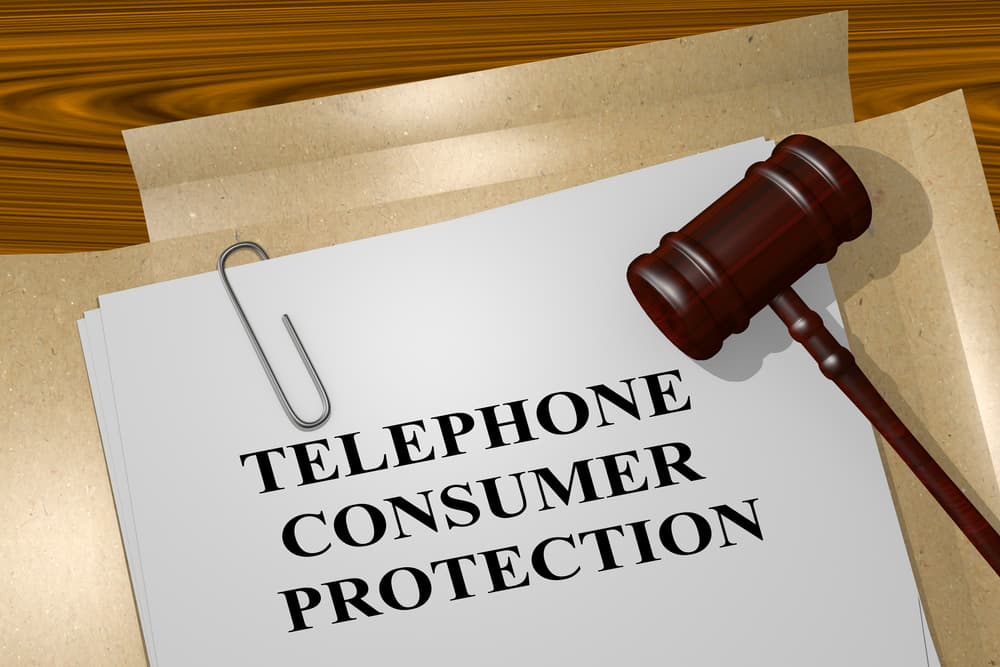Communication technology is part of practically everyone’s daily life. The issue of consumer privacy and protection against unsolicited calls has caught the attention of lawmakers since millions of Californians have been adversely affected by violators of their privacy.
This blog delves into the legislative responses by California to address these concerns, focusing on the Telephone Consumer Protection Act (TCPA) and its state-level counterparts, often referred to as Mini-TCPAs enacted by California state legislature.
Initially introduced at the federal level, the TCPA was established to protect consumers from the deluge of unwanted telemarketing calls and messages. However, with evolving technologies and tactics, the state of California, known for its stringent consumer protection laws, has taken additional steps to fortify these protections.
The enactment of the Consumer Call Protection Act of 2019 in California marks a significant stride in this direction, shifting responsibilities to telecommunications service providers and setting stringent standards for compliance.
If your privacy rights have been violated, contact a California TCPA lawyer for advice on how to get compensated.
The Origin and Purpose of the Federal TCPA

The Telephone Consumer Protection Act (TCPA) was enacted by the United States Congress in 1991. This federal law was designed to address growing concerns among consumers about increasing unsolicited telemarketing calls and faxes.
The TCPA restricts telemarketing communications via voice calls, SMS text messages, and faxes, particularly those made using automated dialing systems and prerecorded voice messages.
The Act also introduced the National Do Not Call Registry, allowing consumers to opt out of receiving telemarketing calls.
Violations of the TCPA can result in substantial penalties, underlining the law's stringent approach to protecting consumer privacy.
The Need for Mini-TCPA Laws at the State Level
While the federal TCPA set the groundwork for regulating unsolicited commercial communications, evolving technologies and persistent telemarketing tactics have led states to enact their own versions of the TCPA, known as Mini-TCPAs.
These state-level laws are designed to further protect residents from unwanted telemarketing calls and texts, often including provisions that are more stringent than the federal TCPA.
The state-level laws address specific local concerns and provide additional enforcement mechanisms to tackle the unique challenges presented by telemarketing practices within their jurisdictions.
California's Approach to TCPA Laws
California is well-recognized for its robust consumer protection laws, and its approach to the TCPA, particularly with the Consumer Call Protection Act of 2019, is a testament to this commitment.
The Consumer Call Protection Act of 2019
On October 2, 2019, California Governor Gavin Newsom signed the Consumer Call Protection Act of 2019. This Act was a direct response to the increasing number of deceptive robocalls and aimed to protect Californians from such fraudulent practices.
The significant aspect of this legislation is its focus on telecommunication service providers rather than individual callers or telemarketers.
Under the Act, service providers are required to implement technology that can verify and authenticate caller identification for calls carried over an internet protocol network.
This mandate was to be met by January 1, 2021, and a good faith effort to comply would be considered a defense against claims of violating the Act.
The technology in question, primarily STIR/SHAKEN protocols, uses digital certificates to ensure that the calling number is accurate and has not been spoofed.
Key Features of California's Mini-TCPA
- Telecommunications Service Providers' Responsibility. The Act places the burden of compliance on service providers, requiring them to employ technologies to combat fraudulent and unauthenticated calls.
- Authentication Requirement. Service providers must use alternative technology that provides comparable or superior capability to verify and authenticate caller identification, specifically through STIR/SHAKEN protocols.
- Enforcement. The California Public Utilities Commission (CPUC) and the Attorney General (AG) of California are responsible for enforcing the Act. They can take appropriate actions to ensure compliance and adherence to the regulations set forth in the Act.
- No Private Right of Action. Unlike the federal TCPA, California’s Mini-TCPA does not contain a provision for a private right of action by individual consumers against service providers.
What Are the Responsibilities Under the Consumer Call Protection Act?
The Consumer Call Protection Act of 2019 in California brings specific responsibilities for telecommunications service providers, focusing on reducing the frequency and impact of deceptive robocalls.
Implementation of STIR/SHAKEN Protocols
A key requirement of the Act is for service providers to implement STIR (Secure Telephony Identity Revisited) and SHAKEN (Secure Handling of Asserted information using toKENs) protocols.
These protocols are designed to authenticate caller IDs and ensure that the calling number displayed is accurate and not spoofed.
By the mandated deadline of January 1, 2021, service providers were expected to have these protocols in place.
A good faith effort towards implementing these technologies is considered a defense against claims of non-compliance with the Act.
Good Faith Effort as a Defense
The Act recognizes a 'good faith effort' to comply with the technological requirements as a defense for service providers.
This means that if a service provider has earnestly attempted to implement the required technologies by the deadline, it can be used as a mitigating factor in any legal actions or claims of non-compliance.
Compliance and Enforcement
The responsibility for ensuring compliance with the Act falls on the California Public Utilities Commission (CPUC) and the Attorney General (AG) of California. They are authorized to enforce the provisions of the Act, ensuring that telecommunications service providers adhere to the required standards. The Act allows these regulatory bodies to take appropriate actions against service providers that fail to meet the Act's requirements.
Service providers are thus encouraged to take adequate precautions and stay informed about the latest technologies and standards to avoid potential enforcement actions from the CPUC or the AG.
The implementation of these measures by service providers is crucial in the fight against robocalls and protecting consumers from potential fraud and invasion of privacy.
For further information on the technological requirements and enforcement of the Consumer Call Protection Act, visit FCC’s guide on STIR/SHAKEN.
The Impact of California’s Mini-TCPA on Consumers and Businesses

The Consumer Call Protection Act of 2019 in California has significant implications for both consumers and businesses, especially those in the telemarketing sector.
For Consumers
- Enhanced Protection. Consumers stand to benefit significantly from the Act. With the implementation of STIR/SHAKEN protocols, there's a higher likelihood that the calls they receive are authenticated, reducing the chances of fraud and scams.
- Reduced Nuisance Calls. The Act aims to decrease the number of robocalls, which have been a major nuisance and source of complaints among consumers. By authenticating calls, consumers will have more trust in the identity of the caller, reducing fear of scam calls.
- No Direct Legal Recourse. Unlike the federal TCPA, California’s Mini-TCPA does not grant a private right of action to consumers. This means consumers cannot directly sue service providers under this Act, but can rely on regulatory bodies for enforcement.
For Businesses
- Compliance Requirements. Businesses, especially telecommunication service providers, must adapt to the new requirements. Implementing STIR/SHAKEN protocols requires technological investment and adaptation to new operating procedures.
- Telemarketing Practices. For businesses engaged in telemarketing, these regulations necessitate a review and possible overhaul of their calling practices to ensure compliance and avoid penalties.
- Potential Reduction in Contact Rates. As call authentication becomes more widespread, businesses might see a reduction in contact rates with consumers who have become more selective about the calls they answer.
The Overall Impact in California
The Act represents a shift in responsibility towards service providers to protect consumers, affecting how businesses interact with potential customers over the phone.
While this may increase operational costs for service providers and telemarketers, the trade-off is a potential increase in consumer trust and a reduction in fraudulent activities.
For a detailed analysis of the impact of TCPA regulations on businesses, you can refer to resources such as Federal Communications Commission (FCC) guidelines and consumer protection advisories.
The next section will discuss the future of TCPA regulations in California, considering potential amendments and the evolving legal landscape.
The Future of TCPA Regulations in California
The landscape of TCPA regulations, particularly in California, is subject to continuous evolution in response to technological advancements and changing telemarketing practices.
Potential Amendments and Additional Legislation
- Adjustments to Current Laws. There may be future amendments to the Consumer Call Protection Act to address emerging challenges or loopholes. These changes could involve stricter measures or adjustments based on the effectiveness of current regulations.
- Inclusion of Private Right of Action. Although the current California Mini-TCPA does not include a private right of action, future legislation or amendments might introduce this provision, offering consumers direct legal recourse against violators.
- Integration with Other Consumer Protection Laws. Future TCPA regulations might be more closely integrated with other consumer protection laws in California, such as the California Consumer Privacy Act (CCPA), to provide a more comprehensive framework for consumer rights and privacy.
The Evolving Legal Landscape in California
- Adapting to New Technologies: As telemarketing and communication technologies continue to evolve, so too will the legal framework governing them. This might include regulations on newer forms of communication such as messaging apps or social media platforms.
- Increasing Consumer Awareness and Advocacy. With growing consumer awareness and advocacy, there may be increased pressure on legislators to strengthen TCPA regulations and ensure they effectively protect consumer rights.
- Balancing Business Interests. The future of TCPA regulations will likely involve balancing the need for consumer protection with the legitimate business interests of companies using telemarketing as part of their marketing strategies.
Contact a California TCPA Lawyer From Kazerouni Law Group
Trying to figure out if you’ve been a victim of illegal robocalls under the Telephone Consumer Protection Act (TCPA) and its state-level counterparts in California can be confusing.
If you're a consumer who has had their privacy rights violated by receiving telemarketing calls when you’re on the Do Not Call Registry and are seeking compensation, an experienced TCPA lawyer can help.
Kazerouni Law Group, renowned for winning over $1 billion for its clients, offers specialized legal services to assist both consumers and businesses who are protected under federal and California TCPA regulations.
Knowledgeable Legal Support in TCPA Matters
- For Consumers. If you are facing issues related to unwanted telemarketing calls, robocalls, or have concerns about your privacy rights under the TCPA, Kazerouni Law Group can provide you with the advice and representation you need to protect your interests.
- For Businesses. Businesses have rights under the TCPA. While there are exceptions to the TCPA regulations, especially in light of California’s specific requirements, businesses can seek compensation from offending companies for unsolicited faxes and phone calls.
How Kazerouni Law Group Can Help
- Comprehensive Case Evaluation. The lawyers at Kazerouni Law Group offer a thorough assessment of your case, ensuring that your unique situation is carefully considered.
- Tailored Legal Strategies. Leveraging their extensive experience in TCPA and consumer protection law, the team crafts strategies specifically tailored to meet your legal needs.
- Navigating Complex Regulations. With the legal landscape constantly evolving, Kazerouni Law Group stays abreast of the latest changes, providing clients with informed and up-to-date legal advice.
- Representation and Advocacy. Whether it's negotiating settlements, representing clients in litigation, or offering regulatory compliance advice, Kazerouni Law Group is committed to advocating for your best interests in any state or federal court.
Contacting a TCPA Lawyer at Kazerouni Law Group

For a free consultation to discuss your TCPA-related concerns, you can reach out to a California consumer protection attorney at Kazerouni Law Group in the following ways.
- Phone: 800-400-6808
- Email: info@kazlg.com
- Online: Talk to a TCPA lawyer online
Kazerouni Law Group is dedicated to ensuring that your rights are protected and that your legal needs are met with the highest standards of professionalism
Contact them today to see how we can help you today and find out if we are the right law firm for you in California.